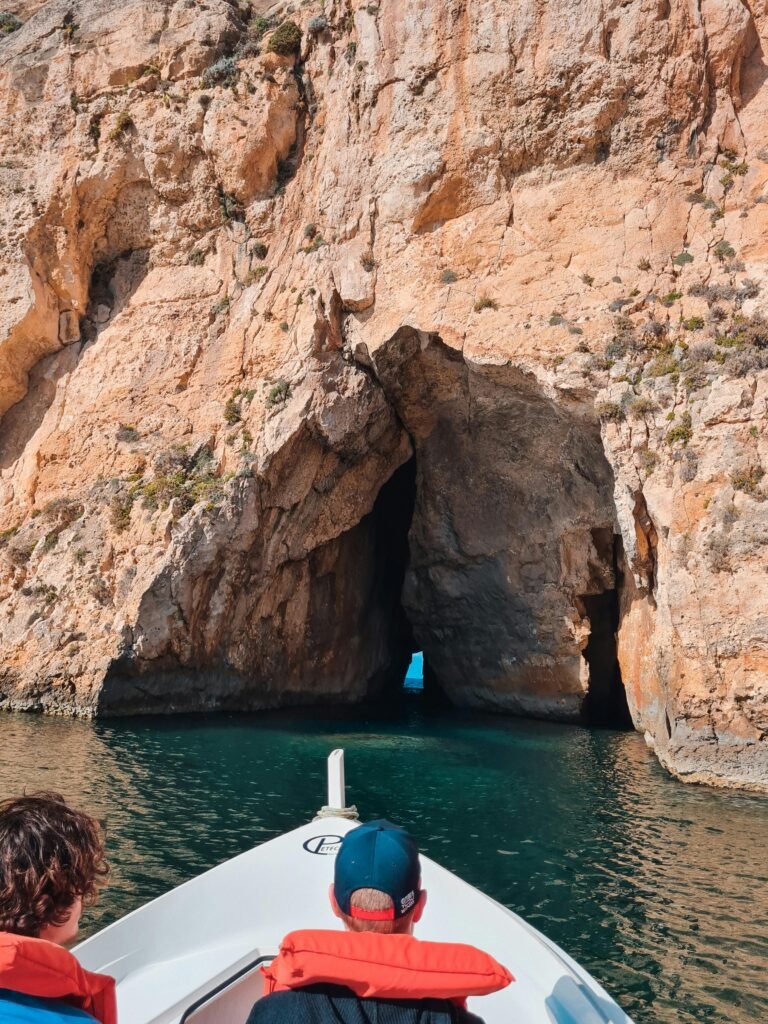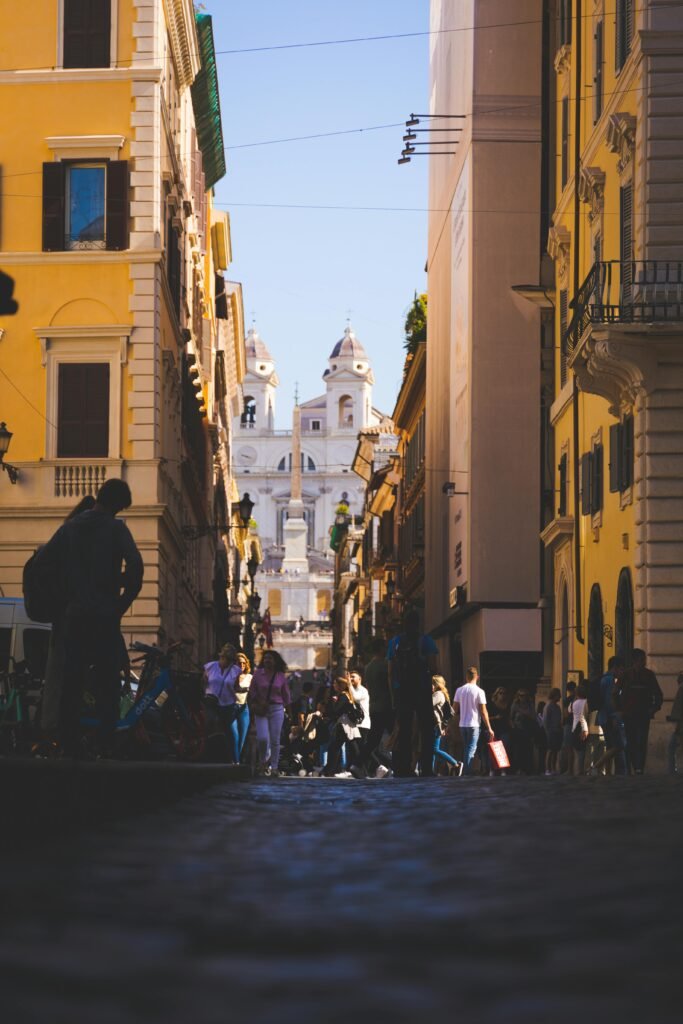Are you ready to embark on a journey to explore the fascinating relationship between tourism and Caribbean culture? Brace yourself for a captivating exploration of how the influx of visitors from all corners of the globe has shaped and influenced the vibrant traditions and customs of this enchanting region. Discover how tourism has not only brought economic prosperity, but also provoked a delicate balance between preservation and adaptation of Caribbean identities. Join us as we delve into the depths of this impactful phenomenon and uncover the intricate ways in which tourism has woven itself into the very fabric of Caribbean culture.
Positive Effects of Tourism on Caribbean Culture
Preservation and Promotion of Local Arts and Crafts
Tourism plays a crucial role in the preservation and promotion of local arts and crafts in the Caribbean. As visitors come from all over the world, they have the opportunity to learn about and appreciate the unique artistic traditions of the region. Local artisans are able to showcase their skills and generate income through the sale of their handmade products. In turn, this encourages the younger generation to continue these cultural practices, ensuring that they are handed down through the generations.
Cultural Exchange and Appreciation
One of the most significant positive effects of tourism on Caribbean culture is the opportunity for cultural exchange and appreciation. As visitors immerse themselves in the local communities, they have the chance to learn about the rich heritage, customs, and traditions of the Caribbean people. This exchange not only broadens their understanding of different cultures but also fosters respect and appreciation for the diversity that exists in the world.
Economic Opportunities for Local Communities
Tourism provides valuable economic opportunities for local communities in the Caribbean. The industry creates jobs and stimulates business development in various sectors such as transportation, accommodation, food, and entertainment. Small-scale entrepreneurs, including local farmers, artisans, and tour guides, benefit from the influx of tourists, as they are able to sell their products and services. This economic boost enhances the overall quality of life for the residents and contributes to the sustainable development of the region.
Negative Effects of Tourism on Caribbean Culture
Commercialization and Commodification of Culture
One of the negative effects of tourism on Caribbean culture is the commercialization and commodification of cultural practices. As the demand for cultural experiences increases, there is a risk of turning these traditions into mere products for sale. Authenticity and meaning can be lost when cultural activities are tailored to the preferences of tourists, compromising the genuine cultural experience that locals once shared.
Loss of Authenticity and Traditional Practices
Due to the influence of tourism, there is a potential loss of authenticity and traditional practices in the Caribbean. As cultural activities become commercialized, there is a tendency for them to be watered down or altered to fit the expectations of tourists. This can lead to a dilution of the original essence and significance of these practices, eroding their authenticity and diminishing their cultural value.
Unequal Distribution of Benefits
Another negative effect of tourism on Caribbean culture is the unequal distribution of benefits. While the industry brings economic opportunities, these benefits are often not evenly shared among all members of the community. Large-scale tourism companies may dominate the industry, resulting in local residents receiving only a small portion of the overall economic gains. This can lead to a sense of dependency on tourism, rather than self-sustainability within the local community.

Cultural Preservation Efforts in Caribbean Tourism
Creation of Cultural Heritage Centers
To address the need for cultural preservation, many Caribbean destinations have established cultural heritage centers. These centers serve as repositories of knowledge and a platform for educating visitors about the unique traditions and practices of the region. They host exhibitions, workshops, and cultural performances, allowing tourists to engage with the local culture and gain a deeper understanding and appreciation of Caribbean heritage.
Revitalization of Traditional Festivals
The revitalization of traditional festivals is another important cultural preservation effort in Caribbean tourism. These festivals serve as an integral part of the local community’s identity and allow for the celebration of cultural diversity. By promoting and preserving these festivals, Caribbean destinations can attract tourists who are interested in immersing themselves in authentic cultural experiences while simultaneously providing economic opportunities for those involved in organizing and participating in the festivals.
Development of Cultural Tourism Policies
Caribbean destinations are also actively developing cultural tourism policies to ensure the preservation of their unique cultural heritage. These policies aim to strike a balance between catering to the desires of tourists and protecting the integrity of the local culture. They outline guidelines for sustainable cultural tourism practices, including the promotion of responsible tourism behavior and the inclusion of local communities in decision-making processes. Such policies help to safeguard Caribbean culture for future generations to enjoy.
Sustainable Tourism Practices for Cultural Preservation
Community-Based Tourism Initiatives
Community-based tourism initiatives empower local communities to actively participate and benefit from tourism while preserving their cultural heritage. These initiatives involve the local residents in designing and managing tourism activities, ensuring that they have a say in how their culture is presented to visitors. By promoting community-based tourism, Caribbean destinations can create a more authentic and sustainable cultural experience, while also providing economic opportunities for the locals.
Education and Awareness Programs
Education and awareness programs play a crucial role in promoting sustainable tourism practices for cultural preservation in the Caribbean. By educating both tourists and locals about the importance of preserving cultural heritage, these programs foster a sense of responsibility towards safeguarding Caribbean culture. Tourists can be encouraged to engage with local traditions respectfully, while locals gain a deeper appreciation for their own heritage and actively participate in its preservation.
Responsible Tourist Behavior
Encouraging responsible tourist behavior is essential for the preservation of Caribbean culture. Tourists can play a significant role by being respectful of local customs and traditions, supporting local businesses, and minimizing their environmental impact. By understanding and appreciating the cultural significance of their actions, tourists can contribute positively to the preservation of Caribbean culture while enjoying their vacation experiences.

Challenges of Balancing Tourism and Cultural Preservation
Overcrowding and Limited Infrastructure
One of the main challenges of balancing tourism and cultural preservation in the Caribbean is the issue of overcrowding and limited infrastructure. As the number of tourists increases, popular attractions and cultural sites may become overwhelmed, impacting their integrity and diminishing the visitor experience. Additionally, limited infrastructure can strain local resources and put pressure on the fragile ecosystems of the region.
Conflicts Between Commercial Interests and Cultural Values
Conflicts may arise between commercial interests and cultural values when it comes to promoting tourism in the Caribbean. While tourism brings economic benefits, there is a risk of prioritizing profit over the preservation of cultural authenticity. Balancing the need for tourist attractions and business development with the desire to protect and promote Caribbean culture requires careful planning, collaboration, and respect for local values.
Lack of Funding and Resources
Another challenge in balancing tourism and cultural preservation is the lack of funding and resources. Caribbean destinations may struggle to allocate sufficient funds for cultural preservation efforts, especially when competing with other pressing socio-economic needs. Limited resources can hinder the implementation of appropriate strategies and initiatives, making it difficult to mitigate the negative impacts of tourism on cultural heritage effectively.
Examples of Successful Cultural Tourism in the Caribbean
The Bahamas: Junkanoo Festival
One example of successful cultural tourism in the Caribbean is the Junkanoo Festival in The Bahamas. This vibrant celebration, held each year in December, showcases the unique music, dance, and costume traditions of the Bahamian people. Tourists are encouraged to participate in the festivities, immersing themselves in the lively energy and cultural spirit of the event. The festival not only attracts visitors from around the world but also fosters a sense of pride and cultural identity among the local community.
Jamaica: Maroon Heritage Tours
In Jamaica, Maroon Heritage Tours offer tourists the opportunity to learn about and engage with the rich history and culture of the country’s Maroon communities. These tours provide insights into the traditions, music, cuisine, and medicinal practices of the Maroons, while also promoting economic opportunities for the community members. By supporting these tours, tourists contribute to the preservation and promotion of Maroon culture, while gaining a deeper appreciation for Jamaica’s diverse heritage.
Trinidad and Tobago: Carnival
Trinidad and Tobago’s Carnival is perhaps one of the most famous examples of successful cultural tourism in the Caribbean. This annual event attracts thousands of tourists who come to experience the vibrant music, pulsating rhythms, and elaborate costumes associated with the festival. The economic benefits generated by Carnival are significant, providing employment for locals and supporting the local economy. The event also serves as a powerful cultural expression, highlighting the creativity, unity, and diversity of the Trinidadian and Tobagonian people.

Case Study: Impact of Cruise Tourism on Caribbean Culture
Positive Economic Impact
Cruise tourism has had both positive and negative impacts on Caribbean culture. On the positive side, it has contributed to the economic growth of the region. The influx of cruise ship passengers brings revenue to local businesses, including tour operators, souvenirs shops, and restaurants. The economic benefits extend to the preservation of cultural heritage, as funds generated through cruise tourism can be reinvested into cultural preservation efforts.
Negative Environmental Impact
However, the rapid growth of cruise tourism has also had a negative environmental impact in the Caribbean. The large number of ships visiting various destinations can put strain on the delicate ecosystems, primarily due to increased pollution and the destruction of coral reefs. Additionally, the development of infrastructure to accommodate the influx of cruise ship passengers can lead to habitat loss and damage.
Cultural Commodification and Shallow Experiences
Another negative effect of cruise tourism on Caribbean culture is the risk of cultural commodification and shallow experiences. Due to time constraints, cruise tourists often have limited opportunities to engage with the local culture on a deeper level. This can lead to a superficial understanding of Caribbean culture and contribute to the perception of the region as a commodity to be consumed rather than a living cultural heritage to be respected and appreciated.
Recommendations for Promoting Sustainable Cultural Tourism
Diversification of Tourism Offerings
To promote sustainable cultural tourism in the Caribbean, diversification of tourism offerings is critical. Rather than solely focusing on popular beach destinations, Caribbean countries should highlight their cultural diversity, encouraging tourists to explore different regions and engage with local communities. By showcasing a range of cultural experiences, including traditional music, dance, cuisine, and art, Caribbean destinations can attract a more discerning and culturally curious tourist market.
Inclusion of Local Communities in Decision-Making
Empowering local communities by involving them in decision-making processes is essential for the promotion of sustainable cultural tourism. This ensures that their voices are heard, and their knowledge and expertise are taken into account when planning tourism activities. Local residents can offer valuable insights into their cultural traditions and help preserve the authenticity and integrity of their heritage. By including them in decision-making, Caribbean destinations can create a sense of ownership and foster a genuine partnership between the tourism industry and the local community.
Promotion of Responsible Tourism Practices
Promoting responsible tourism practices is fundamental for the long-term preservation of Caribbean culture. Tourists should be educated about the importance of cultural preservation and encouraged to engage with the local communities respectfully and responsibly. Caribbean destinations can provide guidelines on appropriate behavior, such as respecting sacred sites, supporting local businesses, and minimizing their environmental impact. By promoting responsible tourism practices, the negative impacts on the local culture can be mitigated, ensuring its long-term viability.

Conclusion
Balancing tourism and cultural preservation in the Caribbean is a multifaceted challenge that requires careful planning, collaboration, and a commitment to sustainability. While tourism brings economic opportunities and cultural exchange, it also poses risks to the authenticity and integrity of Caribbean culture. Through the creation of cultural heritage centers, the revitalization of traditional festivals, and the development of cultural tourism policies, Caribbean destinations can safeguard their unique cultural heritage for future generations.
Implementing sustainable tourism practices such as community-based initiatives, education, and awareness programs, and responsible tourist behavior is vital for the preservation of Caribbean culture. However, challenges such as overcrowding, conflicts between commercial interests and cultural values, and limited funding and resources must be addressed to ensure the sustainable development of cultural tourism in the region.
The success of cultural tourism in the Caribbean can be seen in examples such as The Bahamas’ Junkanoo Festival, Jamaica’s Maroon Heritage Tours, and Trinidad and Tobago’s Carnival. These initiatives showcase the vibrancy and richness of Caribbean culture while providing economic opportunities for local communities.
The impact of cruise tourism on Caribbean culture highlights both positive economic benefits and negative environmental and cultural consequences. To promote sustainable cultural tourism, Caribbean destinations must diversify their offerings, include local communities in decision-making, and promote responsible tourism practices.
Balancing tourism and cultural preservation is an ongoing process that requires continuous collaboration, innovation, and a shared commitment to preserving the unique heritage of the Caribbean. Through sustainable development, Caribbean culture can thrive, ensuring its preservation for generations to come.


